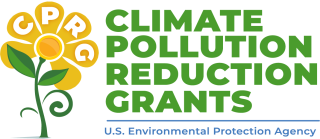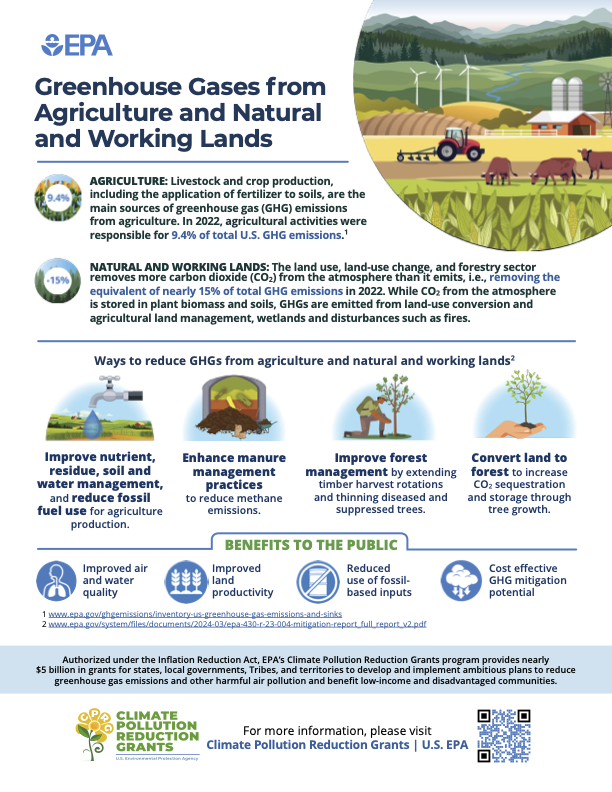CPRG Selected Applications by Sector - Agriculture and Natural and Working Lands

Agriculture: Livestock and crop production, including the application of fertilizer to soils, are the main sources of greenhouse gas (GHG) emissions from agriculture. In 2022, agricultural activities were responsible for 9.4% of total U.S. GHG emissions.
Natural and Working Lands: The land use, land-use change, and forestry sector removes more carbon dioxide (CO2) from the atmosphere than it emits, i.e., removing the equivalent of nearly 15% of total GHG emissions in 2022. While CO2 from the atmosphere is stored in plant biomass and soils, GHGs are emitted from land-use conversion and agricultural land management, wetlands and disturbances such as fires.
The following selected applications include proposed projects in the agriculture and natural and working lands sector:
General Competition Selections
- Central Midlands Council of Governments (South Carolina)
- City of New Orleans (Louisiana)
- Cuyahoga County (Ohio)
(Coalition Members: City of Cleveland, City of Painesville) - Illinois Environmental Protection Agency
- Metroplan (Arkansas)
(Coalition Members: City of Fort Smith, Northwest Arkansas Regional Planning Commission) - Minnesota Pollution Control Agency
- Montana Department of Natural Resources and Conservation
- Nebraska Department of Environment and Energy
- North Carolina Department of Natural and Cultural Resources
(Coalition Members: South Carolina Office of Resilience, Maryland Department of the Environment, Virginia Department of Wildlife Resources)
Tribes and Territories Competition Selections
- Blue Lake Rancheria
- Nez Perce Tribe
- Nottawaseppi Huron Band of Potawatomi
- Salt River Pima-Maricopa Indian Community
- The Snoqualmie Indian Tribe
- Tule River Economic Development Corporation

View or download the CPRG Sector Infographic - Agriculture and Natural Working Lands (pdf) or view the text version.
About Climate Pollution Reduction Grants
Authorized under the Inflation Reduction Act, EPA’s Climate Pollution Reduction Grants program provides nearly $5 billion in grants for states, local governments, Tribes, and territories to develop and implement ambitious plans to reduce greenhouse gas emissions and other harmful air pollution and benefit low income and disadvantaged communities.
